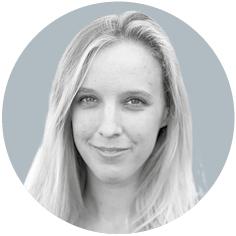Social media
The future of networking
When Manila was struck by the worst floods in 40 years in late September 2009, a member of the online community burst into the debate with the message: “Our town and neighbouring cities were the worst hit!” Jeciel Benavidez continued: “Fortunately our house is on higher ground than the rest of the village. I need to find a way out tomorrow so I can buy provisions.”
Jeciel had actively contributed to the ongoing discussion on climate change. Now however, his partners at www.alumniportal-deutschland.org (APD), an open network anyone can join, read his message that his immediate priority was to “deal personally with the effects of climate change”. All participants were, of course, well aware of climate change concerning everyone, but they had not expected a member of their community to feel the impact so directly.
Most members, however, are already experiencing the consequences of the greenhouse effect. Floods spread epidemics, Ndapewa reported from Namibia. In Kenya, people are starving because the wet season has not come about in four years, wrote Egacicio. And aMansour from Jordan named water shortage as one of the main problems in the Israeli-Palestinian conflict.
Participants use the APD to exchange views. Most of them have in common that they have worked or studied in Germany. The target group is all alumni from the German Academic Exchange Service (DAAD), the Goethe Institute, AGEF (a company which operates in the fields of migration and development cooperation) and InWEnt. On behalf of Germany’s Ministry of Economic Cooperation and Development, these partners started the ADP last year. It serves as a social network as well as a job portal. Under the headline “Topic of the Month”, changing hosts, who are always experts in their field, have been moderating group discussions since August.
The particular strength of the APD is that it involves members from all countries and specialist fields. In the discussion on climate change, for example, solar researchers, veterinarians, gender activists and economists from all continents expressed their views.
“Social networks are a modern form of global interaction and social engagement,” says Andreas Rechkemmer, who hosted the climate-change debate. He is a professor of political studies at the University of Cologne (Germany) and the Beijing Normal University (China). Rechkemmer and his assistant Hanna Hüging from the University of Cologne gave some expert input to the discussion with articles, graphics and links.
November’s “Topic of the Month” is the UN Summit on Climate Change in Copenhagen. The participants will discuss how a new, effective global regime should look like. Recent experience, however, already shows that attitudes and approaches of participants diverge. In September, for instance, Antje in Germany said she would protect the environment by travelling more often by train or bicycle rather than taking the car, whereas Jeciel in Manila stated that riding bikes is far too dangerous. Especially since the floods, he is happy that he has a large sports utility vehicle.
On the other hand, Jeciel also pointed out that one area’s suffering due to climate change may prove a blessing to another. On Catanduanes, the island he is from, typhoons used to regularly devastate the fields. Recently, however, storms have mostly turned away towards Taiwan or Japan before hitting Catanduanes.
Eva-Maria Verfürth









